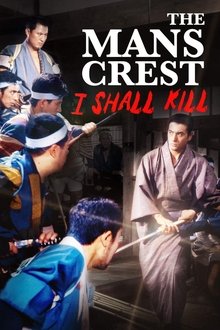Aiba is a gang boss who has just got out of jail, and finds everything has changed. His old gang has broken up, and only a few people still respect him. So he becomes a consultant to another gang who are about to be clobbered by a much larger gang moving in from out of town. Aiba proves a crafty tactician, and does very well at playing gangs off against each other in order to save the smaller gang. His advice is not always taken by those he tries to help, but he is generally proved right.
Related Movies
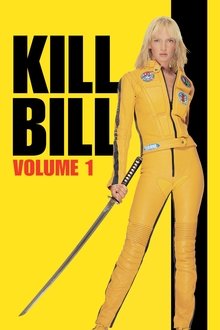
Kill Bill: Vol. 1 (2003)
An assassin is shot by her ruthless employer, Bill, and other members of their assassination circle – but she lives to plot her vengeance.

Koiko no Mainichi (1989)
Shinjuku gangster Sabu and his young wife Koiko try to live a normal life, despite the interferences of gang politics and criminal deals. After she saves his life, Sabu's gang-boss, Tominaga, falls in love with Koiko, and sends Sabu into increasing dangerous situations, hoping to cause his arrest, and thus obligate himself to "take care" of Koiko while Sabu is in prison.

Dolls (2002)
Dolls takes puppeteering as its overriding motif, which relates thematically to the action provided by the live characters. Chief among those tales is the story of Matsumoto and Sawako, a young couple whose relationship is about to be broken apart by the former's parents, who have insisted their son take part in an arranged marriage to his boss' daughter.
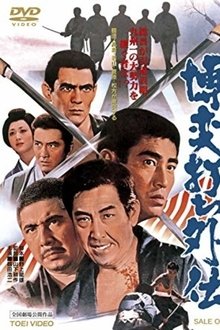
The Pledge (1972)
When Omuro Yahachi of the Omuro family is selected as Mutsumikai Soke's successor, the conflict between the Kitakyushu and Wakamatsu begins.
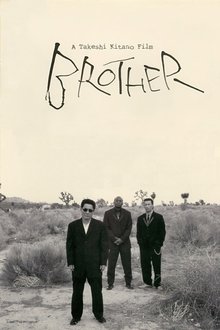
Brother (2000)
A Japanese Yakuza gangster's deadly existence in his homeland gets him exiled to Los Angeles, where he is taken in by his little brother and his brother's gang.
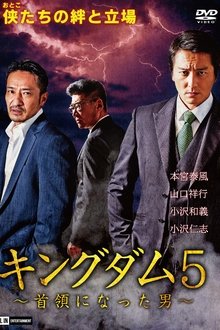
Kingdom 5: The Man Who Became the Leader (2020)
Shimazu Clan's third-generation boss, Tetsuo Sakuragi (Yasukaze Motomiya), and his sworn brother, Kenichi Kanamori (Yoshiyuki Yamaguchi), are set to be released from prison. Although Sakuragi plans to personally welcome his brother's return, Eitoshi Kaji (Hitoshi Ozawa) advises against it. Sakuragi dismisses Kaji's concerns, but Kaji reaches out to Tomomatsu Miwa (Naoki Hongo) of the Miwa Clan for support in convincing Sakuragi. On the day of Kanamori's release, it is Kaji, not Sakuragi, who comes to greet him. Witnessing this, Kanamori’s reaction is…
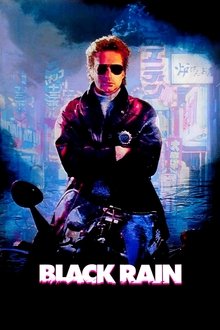
Black Rain (1989)
Two New York cops get involved in a gang war between members of the Yakuza, the Japanese Mafia. They arrest one of their killers and are ordered to escort him back to Japan. However, in Japan he manages to escape, and as they try to track him down, they get deeper and deeper into the Japanese Mafia scene and they have to learn that they can only win by playing the game—the Japanese way.
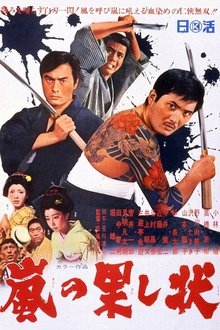
Duel in the Storm (1968)
It is the Taisho era in Japan. A man has quit the Yakuza after five years and returned to Shikoku in order to begin his life anew as a ferryman. His boss, however, became ill and the boat is taken due to unpaid debts to the local thugs. His new life has not begun well and he is determined to rebuild the shattered business. The Yakuza, however, have added the ferry business to the rest of their portfolio of local concerns.
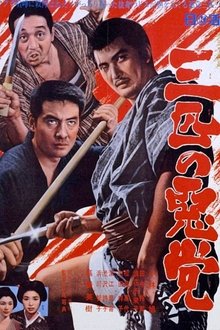
Three Rogues (1968)
Two lone wolf yakuza (Hideki Takahashi and Kunie Tanaka) rob a gambling den, then split up when pursued by the angry gang. They eventually meet again at Tanaka's mother's rural farmhouse. By then, one-eyed Kobayashi has wrangled his way into the scenario, intending to get a split of the proceeds (since he had helped them get away). Although there is some dissension amongst the three, they eventually close ranks to fend off their stubborn, relentless pursuers. Unhappily, Tanaka’s mother (Chieko Naniwa) is killed in the process. There are also love interests (Yoshiko Machida and Kayo Matsuo) and some humor along the way. An admirably different approach to the formulaic ninkyo yakuza programmer, filmed largely in sweltering summer countryside locations.
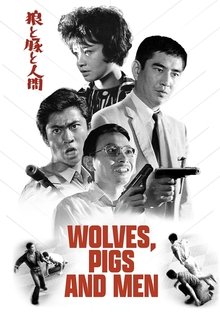
Wolves, Pigs & Men (1964)
Sabu and his pals hold a pauper's funeral for Sabu's mother. His brother Jiro arrives home, fresh out of jail, and Sabu pointedly states that Jiro is not invited. Jiro meanwhile is planning a big job - steal 40 million in cash and drugs, and he invites Sabu and gang to act as decoys, for 50,000 each. The sting is a success, but the double-crossing starts almost immediately. Sabu discovers how little of the take they were promised and hides the stash. Jiro and his slimy partner pressure the kids to fess up. Meanwhile, their respectable elder brother Ichiro is being leaned on by the town's big boss, whose money it was.
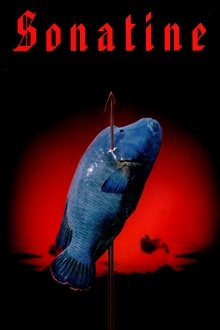
Sonatine (1993)
Murakawa, an aging Tokyo yakuza tiring of gangster life, is sent by his boss to Okinawa along with a few of his henchmen to help end a gang war, supposedly as mediators between two warring clans. He finds that the dispute between the clans is insignificant and whilst wondering why he was sent to Okinawa at all, his group is attacked in an ambush. The survivors flee and make a decision to lay low at the beach while they await further instructions.

Painful Bliss: Final Twist (1977)
A young executive has a really bad night after an encounter with a crazed bisexual wannabe yakuza and his horny girlfriend.

A Scarred Life 2: Blood Will Tell (1972)
President of the territorial yakuza organization is being manipulated by a crooked leader in the military and some capitalists Ishikiri. The plan is to get multiple family of the organized crime groups based in Osaka to war it out and order the Shima to the Onishi group of the branch to expand the territory. Now members of the same yakuza gang are forced to fight each other over territory and honor.
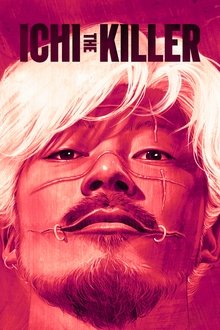
Ichi the Killer (2001)
As sadomasochistic yakuza enforcer Kakihara searches for his missing boss he comes across Ichi, a repressed and psychotic killer who may be able to inflict levels of pain that Kakihara has only dreamed of.
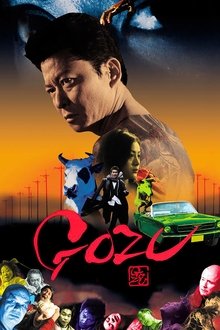
Gozu (2003)
Minami mistakenly kills a gangster associate of his named Brother. Almost as soon as the murder takes place, the body of the deceased man is gone, prompting Minami to conduct a search. While looking, he finds a mysterious isolated hotel where he decides to take a rest. Not only are the front desk clerks a bit strange, but even the ambiance feels unusual. Minami soon realizes he may have gotten more than he bargained for.
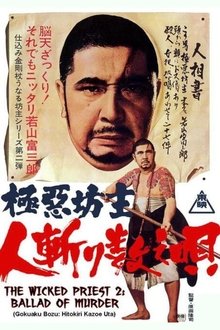
Wicked Priest 2: Ballad of Murder (1968)
The long awaited second film in the Wicked Priest series is a masterpiece of sword swinging fury as Shinkai is asked by a man on the run to bring his young son to live with his grandfather, the master of a ju-jitsu dojo during the Taisho period of the early 20th century. Shinkai then runs afoul of a gangster group using strong-arm tactics to take over the profits from local gambling. When he proves to be more than they can handle, they hire the one man who has the ability to kill Shinkai and exact revenge, Ryotatsu, the karate priest whom Shinkai blinded in the first film. This ultra-violent entry has long been considered the best movie in the series and never made its way to home video before. See a spectacular display of Wakayama Tomisaburo’s martial art expertise in this action packed film. The Holy Grail of sword movies has arrived at last! /Winterheart of CG
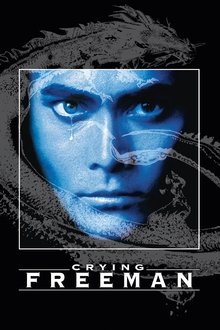
Crying Freeman (1995)
A lethal assassin for a secret Chinese organisation, who sheds tears of regret each time he kills, is seen swiftly and mercilessly executing three Yakuza gangsters by a beautiful artist. She is captivated by the grace of his kill and later falls in love with him. An intense power struggle for the leadership of the Yakuza Clans ensues as they seek vengeance for the death of their leader.

